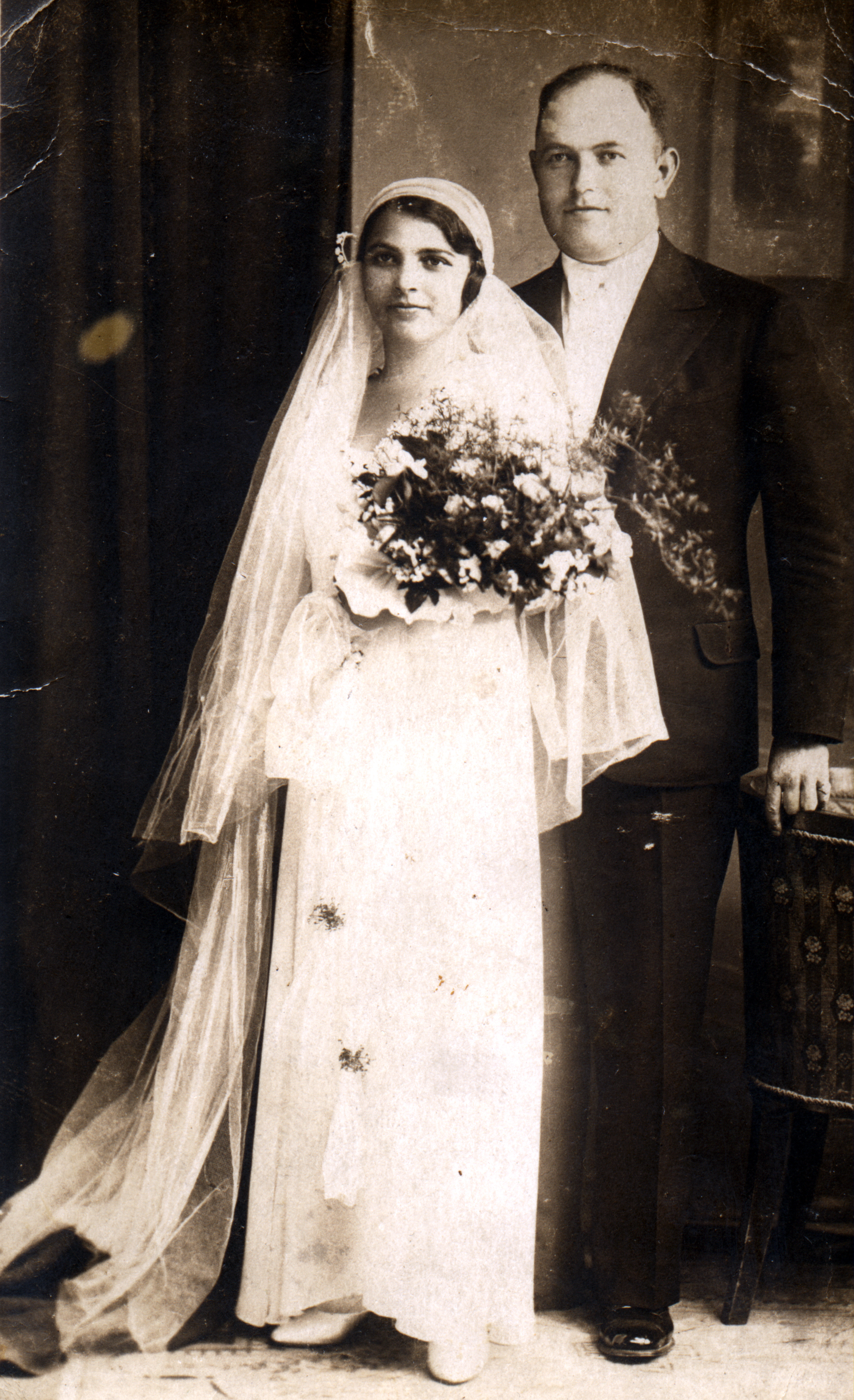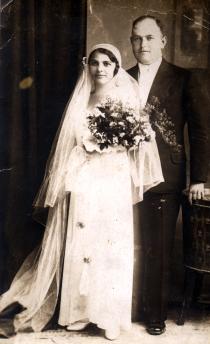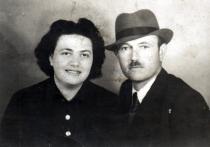This is the wedding picture of my father, Julius Mueller, and his bride, Aranka Strikerova, from Nové Zámky. They married in the 1930s and had four children: Róbert, Tomás, Ivan and a daughter, Marika. None of the children or my father's wife returned from the camps. My father returned alone. His only happiness was that he met my mother, Sarlota Reichenbergerova. They married on May 1, 1946. They lived together in Galanta until 1957 when he died of cancer. At the time, I was 7 and my sister was 5. My sister's name is Zuzana Muellerová-Wisterová. She lives in Bratislava and has a daughter, Vierka. Our family is very small.
My father was a farmer. He was born on February 15, 1908, in Dolne Saliby, which was in the Austro-Hungarian Empire at the time. His family was Orthodox, and their rabbi was Rabbi Buchsbaum. My paternal great-grandfather was born in a village called Vaja vata. My father's father, Natan Mueller, died in 1915 in World War I. My father grew up with his mother, Charlota Grunvaldová; her married name was Muellerová. She was known as a very energetic woman, ambitious, with a very strong personality. She lived with her sister, Berta, who was not married.
My mother was born in Samorín in 1923. Samorín had a famous Orthodox community. My mother's family was very religious, but also very progressive. My grandmother was familiar with famous composers and their arias. My mother learned to sing all of them from her. Operas, operettas - it was progressive for that period. They also read quite a lot. My mother was from a very poor family, but they put emphasis on education and culture.
My mother had two brothers, Ladislav and Simon. Ladislav died on the Russian front in 1941, while he was in a forced labor brigade. Simon, who was with him in a work camp, survived the war and returned in May 1945. Simon left Slovakia for Israel in December 1945. He remained in Israel until 1960, when he left for America. Simon now lives in Castro Valley, near San Francisco, California.
My mother's parents and my father's mother died in Auschwitz. There was not one family in Galanta in which children born after the war had grandparents. That is the biggest handicap - when a child does not know his grandparents and cannot find the support, the knowledge, the family stories. I was very happy that my mother lived to see her granddaughter, Vierka. My mother was very proud of her and loved her very much.


